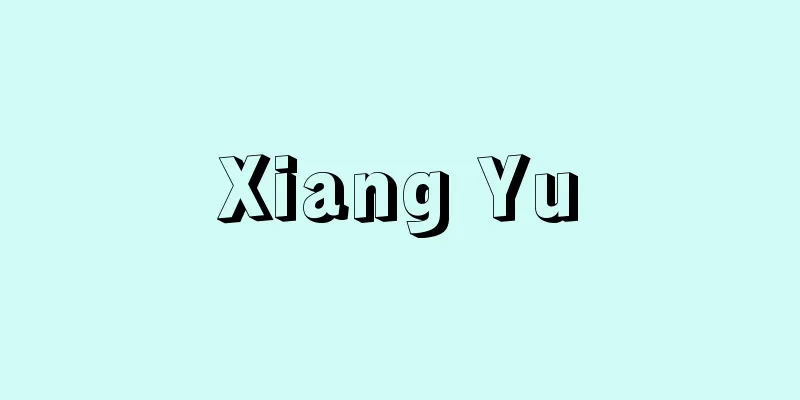Xiang Yu

|
He was one of the heroes who appeared during the transition from Qin to Han in China. His given name was Ji and his pen name was Yu. He could be said to belong to the aristocratic class, being descended from a general in the state of Chu. Yu was educated by his uncle Xiang Liang and lived in Kuaiji Commandery (Jiangsu Province), but took advantage of Chen She's rebellion to rebel against Qin. After Liang's death in battle, Yu became the leader of the generals, defeated Zhang Han of Qin, entered Guanzhong, killed the Qin king Ziying, and burned Xianyang. He eventually made the King of Chu Huai the Righteous Emperor, and called himself the Overlord of Western Chu. At this time, he enfeoffed 18 of his subordinates as kings. This was the revival of the feudal system. Han's first emperor Liu Bang was not crowned king, and dissatisfied, he rebelled against Yu. There were frequent battles between the two sides, but since Xiang Yu had supported the Righteous Emperor and killed him for convenience, he lost his just cause, and gradually Gaozu gained the upper hand. However, one of Gaozu's subordinates, Wang Ling, criticized him, saying that Xiang Yu was polite but reluctant to give rewards to meritorious officials, while Gaozu was rude but did not stingy with things. This may have been the indirect cause of Xiang Yu's defeat. This struggle for supremacy was a battle over whether to establish prefectures or feudalism, and Yu's defeat marked a turning point in history. Although Yu was a conservative, the tragic hero image that is passed down can be said to be the people's elegy against feudalism. Xiang Yu was only 31 years old when he died after the defeat at Gaixia, the final battle. [Takashi Yoshinami] [References] | |Source: Shogakukan Encyclopedia Nipponica About Encyclopedia Nipponica Information | Legend |
|
中国、秦(しん)・漢交替期に現れた群雄の一人。名は籍、羽は字(あざな)。楚(そ)の将軍の家柄を引く貴族的階層に属するといえよう。羽は叔父の項梁(こうりょう)に教育を受け、会稽(かいけい)郡(江蘇(こうそ)省)に居住していたが、陳渉(ちんしょう)の反乱に乗じて秦に背いた。梁の戦死後、羽は諸将のリーダーとなり、秦の章邯(しょうかん)を破って関中に入り、秦の王、子嬰(しえい)を殺して咸陽(かんよう)を焼いた。やがて楚の懐(かい)王を推戴(すいたい)して義帝とし、自らは西楚の覇王と称した。このとき部下18名を王に封じている。封建体制の復活である。漢の高祖劉邦(りゅうほう)は王に封ぜられず、不満を抱いて羽に反旗を翻した。双方の戦闘はしばしば繰り返されたが、義帝を擁立し、つごうで殺した項羽に大義名分が失われたので、しだいに高祖が優勢となった。もっとも高祖の部下の王陵の批評に、項羽は礼儀正しいが功臣に褒賞をやるのを渋り、高祖は無礼だが物惜しみをしないといっている。こんなところに項羽の敗北の遠因があったかもしれない。この覇権争奪は郡県か封建かをめぐる争いであり、羽の敗北は歴史上一つの画期となった。羽は保守的立場にあったが、伝えられる悲劇の英雄像は民衆の封建制に対する挽歌(ばんか)ともいえよう。最後の決戦となった垓下(がいか)の敗北ののち死んだ項羽は、いまだ31歳であった。 [好並隆司] [参照項目] | |出典 小学館 日本大百科全書(ニッポニカ)日本大百科全書(ニッポニカ)について 情報 | 凡例 |
>>: Geng Yin Yearbook - Kouin Nenjaku
Recommend
Spotted Sunflower - Spotted Sunflower
A butterfly belonging to the family Satyridae in ...
Lazareviĉ, L.
...A country that existed in the western Balkan P...
Karachi - Karachi (English spelling)
Pakistan's largest city, located in southern ...
Kim Won-bong (English spelling)
1898-? A Korean national revolutionary activist fr...
Laplacian
…In this case, for a function u ( x ) that is twi...
Buffalo Bill
1846‐1917 His real name was William Frederick Cody...
Imperial Court Law System
…All Imperial Household affairs were under the so...
Tornionjoki
…Length: 570 km. Also called the Torne River, or ...
Hashidoi - Hashidoi
A deciduous tree of the family Oleaceae (APG clas...
Juel, J.
…The first Danish artist to achieve international...
Listera pinetorum (English spelling) Listera pinetorum
… [Ken Inoue]. … *Some of the terminology that me...
Rock ptarmigan - Rock ptarmigan
A bird of the ptarmigan family. Wingspan: 18cm. Wi...
Temperature sensation
Sensations caused by the reception of thermal sti...
Nupe people - Nupe (English spelling)
An ethnic group living in the central part of Nige...
Comenius - Johann Amos Comenius
An educational thinker born in Moravia, a region ...









